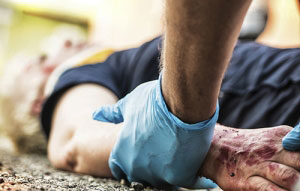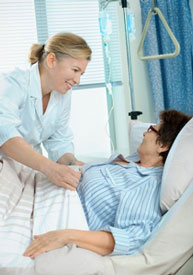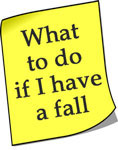Preventing elderly falls in the home

FACT: 1 out of 3 elderly people (those aged 65 or older) have a fall each year but less than half choose to talk about it. Reasons for this could include fear of ageing, fear of not coping, fear of losing independence, fear of being hospitalised or put in a nursing home and fear of what people may think. Our in home care caregivers can help prevent falls in elders, so they can live in their own home joyfully, for life.
Among seniors, falls are the leading cause of both fatal and nonfatal injuries.
In 2014, 2.5 million non-fatal falls among seniors and elders were treated in emergency departments and more than 734,000 of these patients were hospitalised. In 2014 the direct medical costs of falls in Australia (adjusted for inflation), was $34 billion.
Risk factors for falls
These are many and varied with often more than one risk factor in the individual affected. It is essential to consider these when looking at preventative measures. Risk factors for falls include:
What health outcomes are linked to falls?
- 20% to 30% of people who fall suffer moderate to severe injuries such as lacerations, hip fractures, and head trauma. These injuries can make it hard for people to get around or live independently, and increase the risk of early death.
- Falls are the most common cause of traumatic brain injury.
- Most fractures among elders are caused by falls. The most common are fractures of the spine, hip, forearm, leg, ankle, pelvis, upper arm and hand.
- Many people who fall, even if they are not injured, develop a fear of falling. This fear may cause them to limit their activities, which leads to reduced mobility and loss of physical fitness and in turn, increases their actual risk of falling again.
What can I do to prevent a fall?


- Stay where you are and take a deep breath. Decide what hurts and what you might have injured.
- Decide whether you can call for help without getting up. Is there a telephone within reach, or are you wearing your alert button?
- If you don’t think you have suffered a break or serious injury, you may try to get up. Crawl on your hands and knees, or army-crawl with you forearms and legs to a stable chair.
- Put your hands on the chair. Before moving any further, make sure you are not dizzy/ disoriented, but balanced and stable.
- Slowly get up on your knees, and then kneel with one foot on the ground. Push yourself up, turn, and sit in the chair.
- Stay seated for a few minutes.
- Tell your family or carer about your fall immediately. Not all injuries hurt right away because your adrenaline disguises your pain, so even if you don’t feel pain anywhere it’s a good idea to report the fall to a doctor. Your doctor can then check you over and decide if any further investigations are needed.
“One of our in home care clients gets down on the ground every day, to practice getting up off the floor. That’s an excellent idea that keeps her strong enough to get up if she falls. It also reduces her fear of falling.”
Daughterly Care 24 hr Private Nurse
Falls can be scary, especially when you’re home alone. The most important first step though, is to not panic, try and relax then call for help.
The Daughterly Care Joyful Living Approach™
As we age, physical problems such as arthritis, osteoporosis, diabetes and heart issues may affect our mobility leaving us less confident in carrying out our day to day activities. However, getting older should not have to mean loss of independence, mobility or a major change in lifestyle. Our home nursing services support any condition that is impacting your ability to live independently and well. Our client-centred approach is designed to ensure our elderly clients remain in control of the lives for as long as possible by tailoring a service to meet their individual needs.
A comprehensive assessment will help identify areas where some extra support could really make a difference. For example, ensuring eye and dental visits are up to date, putting strategies in place to reduce the risk of falls at home (having the right equipment, clothing and footwear), making sure medication is administered exactly as prescribed and monitoring of weight, nutrition and hydration.
Most of our Caregivers are trained in an exercise program that has been proven through evidence based research done by the University of Sydney to reduce falls by 31%. This exercise program can be done during our usual service time. If you want to reduce your risk of falling, ask for a Caregiver trained in falls reduction.
We provide 24 Hour care, Live In care, Hourly care, in addition to a wide range of other services.
To discuss how we can best help you, we’d love to come and visit you in your own home.
Call for a no obligation consultation on (02) 9970 7333.
For more information on falls take a look at these pages.
Elders home safety and fall prevention
How to reduce falls in elders by 31%
Elders can regain confidence after a fall with in home care
SA Coroner’s health warning about elders falls in nursing homes
Elder care myth no.1- You have to go to a nursing home
